We all want to be in control of our lives, but what factors really influence our approach to control? Your locus of control determines both your motivation and your reactions to situations. If you haven’t checked out my article on “Control – what it is and how to let it go” be sure to give it a read!
Locus of control
In 1954, psychologist Julian B. Rotter coined the concept of ‘Locus of Control’. It has become an instrumental aspect of personality psychology.
‘Locus of Control’ refers to the extent to which people feel that they have control over the events that influence their lives.

Determining your Locus of Control
Ask yourself: “When I am dealing with something difficult in my life, do I feel like I have control over the result or do I believe that the outcome is in the hands of outside forces?”
If you feel that you have the control over the outcome of the given situation, you have what psychologists refer to as an internal locus of control. If you think that the outcome is dependent on external variables, you have an external locus of control.
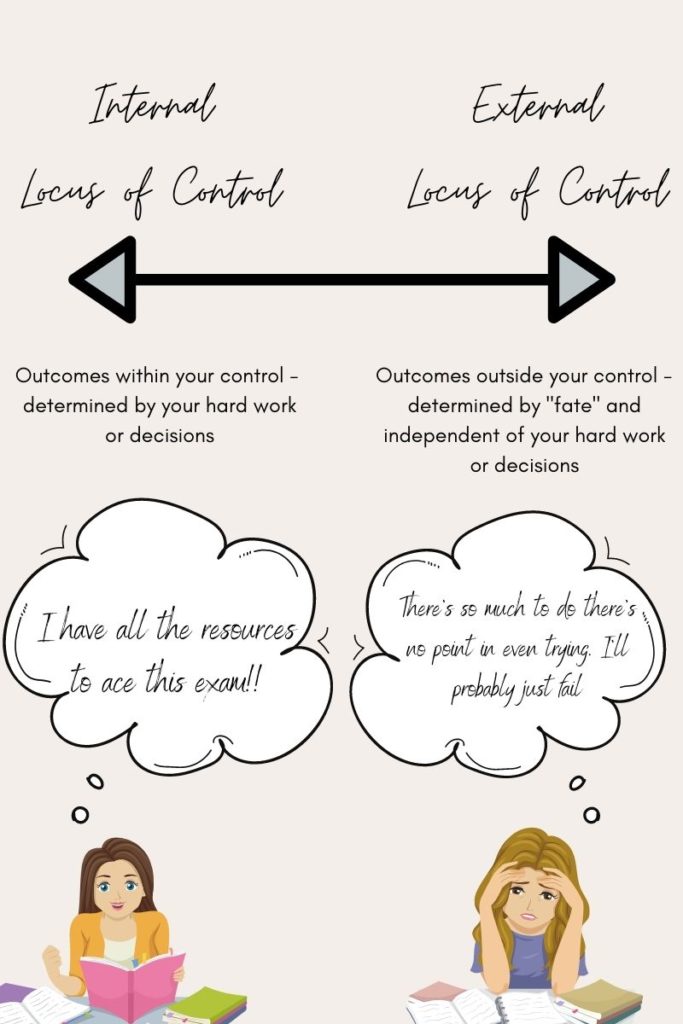
Okay, cool but what does that actually mean?
I’m glad you asked. Your locus of control can actually influence not only how you react to situations but also your motivation to take action when an event occurs in your life.
Locus of control is a spectrum. Nobody has a complete external locus of control or inversely, a complete internal locus of control. We are all somewhere between the two extremes.
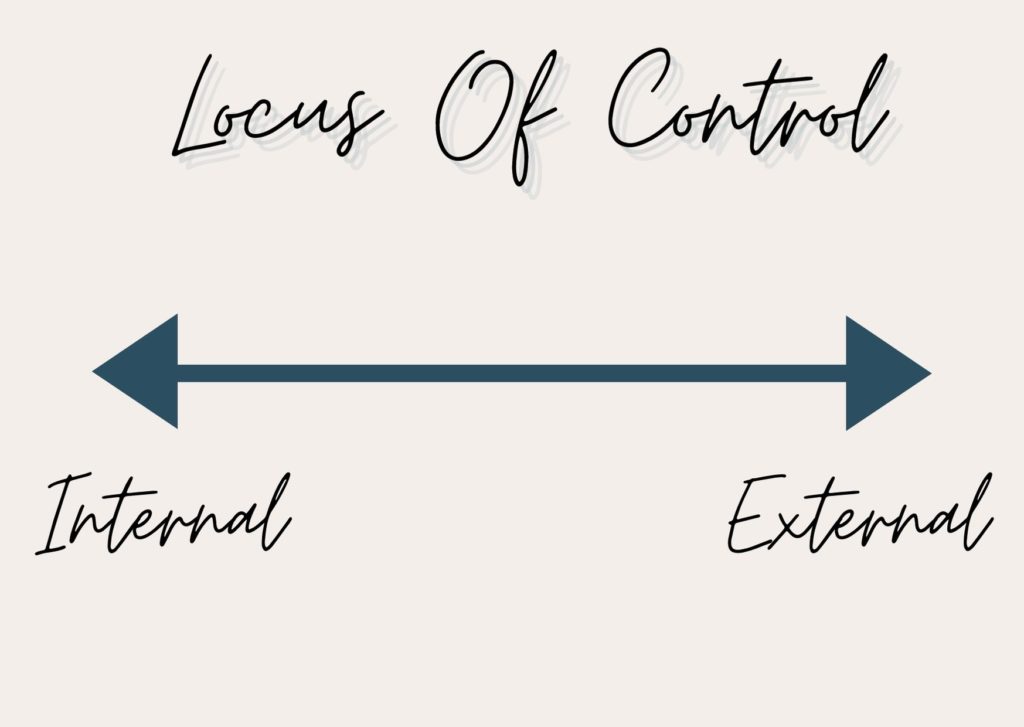
Internal Locus of Control
If you feel that you are the ultimate decider of your fate, you are then more likely to be proactive in a given situation.
People with an internal locus of control:
- Take responsibility for their actions
- Less influenced by the opinions of other people
- Better at tasks when they are allowed to work at their own pace
- Have a strong sense of self-efficacy
- Work hard to achieve the things they want
- Confident in the face of challenges
- Physically healthier
- Report being happier and more independent
- Often achieve greater success in the workplace
Having an internal locus of control can be a good thing. It means that you believe that your own actions have an impact.
Inversely, those with an internal locus of control can also be very hard and put too much pressure on themselves.

External Locus of Control
If you are of the belief that the outcome is out of your hands, and the result of something happening is due to external variables, then you are less likely to work to take action and take charge.
People with an external locus of control:
- Blame outside forces for their circumstances
- Credit luck or chance for any successes
- Don’t believe that they can change their situation through their own efforts
- Feel hopeless or powerless in the face of difficult situations
- More prone to experience learned helplessness
But it’s not all bad!! On the positive side, people with an external locus of control are better at accepting hardship and defeat and moving on. They don’t let their own ego and pride cloud their judgment and affect their future decisions.
If you tend to have more of an external locus of control and would like to have a more internal LOC, you might find it helpful to start actively trying to change how you view situations and events.
Rather than viewing yourself as a passive bystander who is caught up in the flow of life. Instead, try thinking about actions you can take that will have an impact on the outcome.
If you feel like you have little control over your life, you can do a few things to change it to a more internal locus of control.

1. Take responsibility for your actions
I want you to think back to moments in your life in which you were distressed.
Maybe someone you tripped on a walk while on a hike. Your grocery bag burst open with all of your produce falling to the floor. You bumped another car. You did poorly on an exam.
Who did you think was at fault? The way you justify these situations says a lot about your locus of control.
Did you trip because you weren’t paying attention? Were you being arrogant and piling too many groceries into the bag? Were you distracted by something while driving that you weren’t fully focused on the road? Did the teacher screw you over or did you not study the full syllabus?
Rather than uncover the excuses you may have made or feel guilt for these situations, try and think of the mindset that you resort to when these events occur.
You can increase your internal locus of control by learning to take responsibility for the outcome of a situation rather than shifting the blame to someone or something other than yourself.

2. Take charge
I want you to think of your future goals and all the steps you must take to achieve them.
When you are imagining these steps, does your path involve thoughts of:
“I can’t do it if ‘insert excuse here’ happens!” or “I’d have to be pretty lucky.”
If so, you see future success dependent on someone or something else.
To increase your internal locus of control, change your thinking to:
“When I make this happen.”
“When they see my effort.”
“Determination, not luck, will take me to my future goals!”
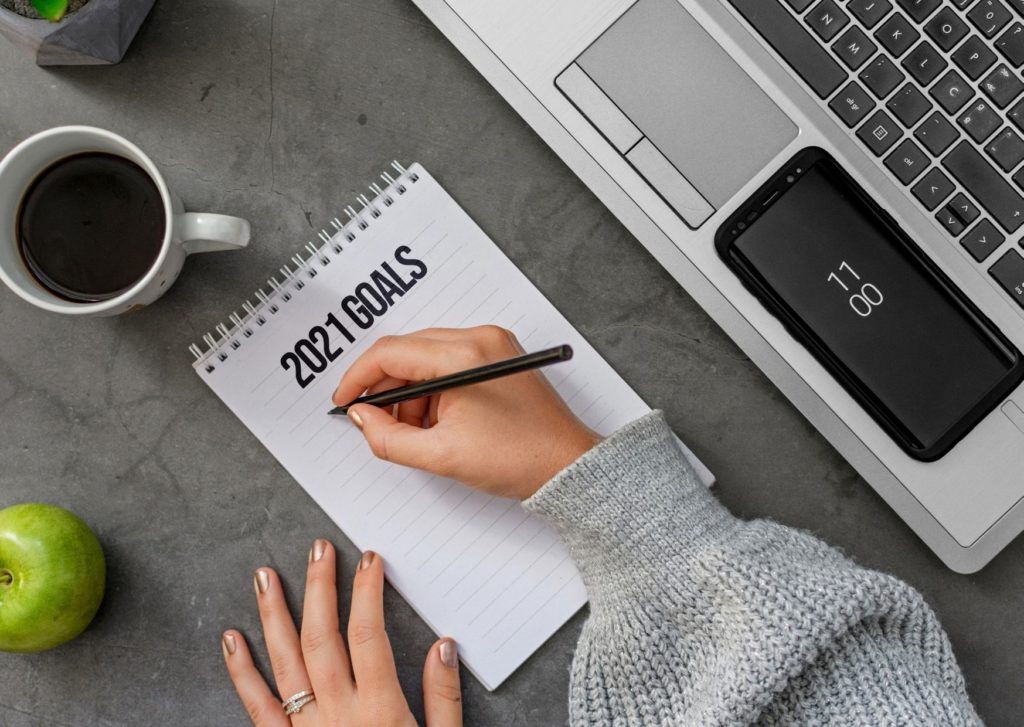
3. Embrace failure
Although we never welcome failure, we all encounter it at one time or another. Those with an external locus of control tend to look at situations with the probability of failure.
If they think there is a chance of failure, they will avoid the situation. That being said, it is difficult to accomplish much in life if the fear of failure drives you to avoid situations.
If you think this way and would like to increase your internal locus of control, go out and challenge yourself to do something that you know might result in failure. I know. It sounds crazy! But just trust me on this, and give it a try!
It could be running a 5km race. Or asking a question in a lecture. Even just trying to wake up an hour earlier!
As you continue to challenge yourself, you will learn that failing isn’t as scary as you thought it was going to be.
After each failure, if you continue to acknowledge and tell yourself that said failure was a result of your communication skills, lack of preparation, or something else you can improve, you will be on the path to increasing your internal locus of control and closer to achieving your goals and dreams!
The stronger your internal locus of control, the more rewarding you will find life. You will no longer feel the need to blame others or be fearful of doing interesting activities. You will find those around you will admire your sense of self and how you now are the master of your destiny!

Be sure to follow along with our weekly theme on Instagram and Youtube! You’ll find positive affirmations, quotes, infographics and guided meditations on our topic.



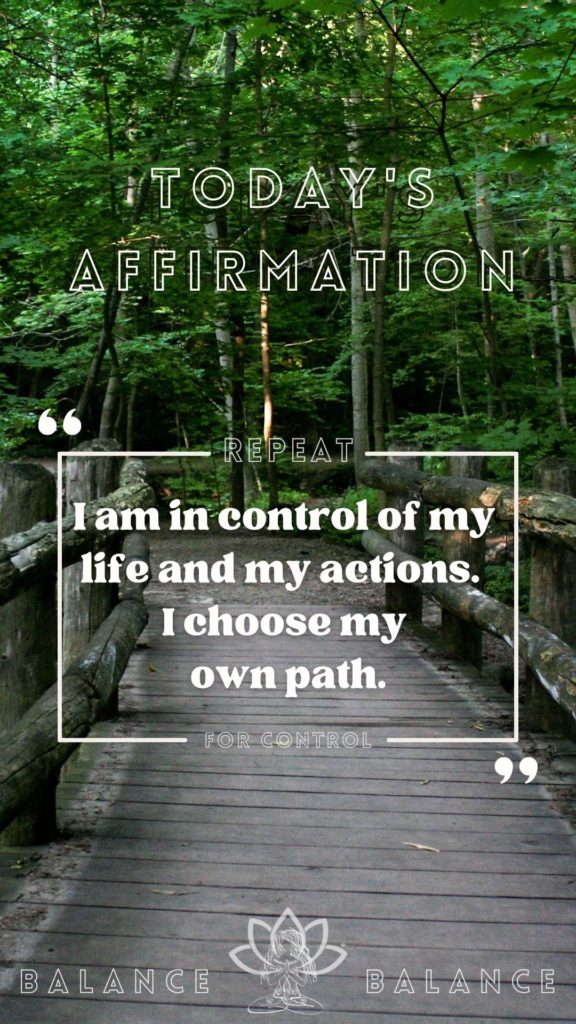
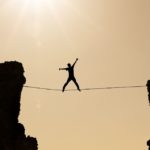





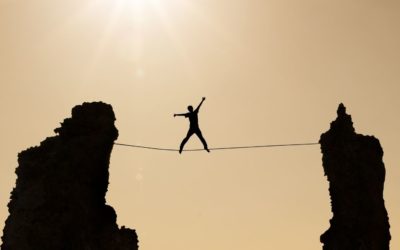


0 Comments